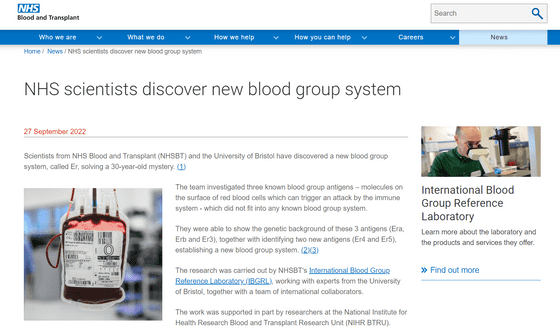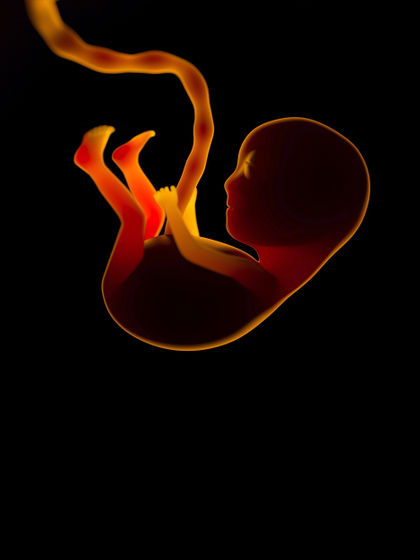A 30-year-old mystery has been solved, experts say

When it comes to blood types, the
Missense mutations in PIEZO1, encoding the Piezo1 mechanosensor protein, define the Er red blood cell antigens | Blood | American Society of Hematology
https://doi.org/10.1182/blood.2022016504
NHS scientists discover new blood group system - NHS Blood and Transplant
https://www.nhsbt.nhs.uk/news/nhs-scientists-discover-new-blood-group-system/

September: er-blood | News and features | University of Bristol
UK Scientists Discover Ultrarare Blood Group System | Tech Times
https://www.techtimes.com/articles/281447/20221004/uk-scientists-discover-ultrarare-blood-group-system.htm
The trigger for this research was the case of a mother and child who had to undergo an emergency caesarean section because an abnormality was found in the blood of the fetus. After that, the baby died in vain despite desperate medical interventions such as blood transfusions, and the cause was unknown.
In order to investigate the cause of this case, an international research team centered on the University of Bristol and the National Blood Service (NHSBT) in the UK analyzed the mother's blood sample and found that it was a very rare blood type called 'Er type'. turned out. It was found that this may have caused the fetal and mother's blood to not match and the mother's body to attack the baby's blood.

Regarding the Er type, an antigen called 'Era' was discovered more than 30 years ago, and a total of three antigens, 'Erb' and 'Er3', were identified. The details of the substance remained unknown. Therefore, when the research team conducted research to remove and reintroduce proteins from cells using gene editing technology, three known antigens and two newly discovered antigens ``Er4'' and ``Er5'' were `` Piezo1” protein, confirming that the Er type is a new blood group system.
NHSBT's Nicole Thornton said of the findings: 'While this discovery solves a 30-year-old mystery about the genetic background of blood types, it is most important to us that the tragic loss of a baby I was able to deliver the answer to the mothers.'
According to the research team, this study established a test method for examining rare blood types, so it has become possible to provide the best treatment for patients with rare blood types in the future. In addition, although the protein identified this time was only present in a very small amount on the surface of cells, it was found to have antigenicity even in such cases, so it was a major discovery in terms of blood transfusion medicine.
Related Posts:
in Science, Posted by log1l_ks







